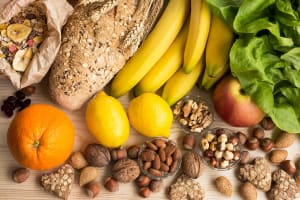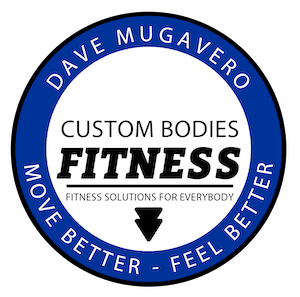
Fiber is one of the main reasons whole plant foods are good for you.
Growing evidence shows that adequate fiber intake may benefit your digestion and reduce your risk of chronic disease.
Many of these benefits are mediated by your gut microbiota — the millions of bacteria that live in your digestive system.
However, not all fiber is created equal. Each type has different health effects.
What is Fiber?
Put simply, dietary fiber is a non-digestible carbohydrate found in foods.
It’s split into two broad categories based on its water solubility:
- Soluble fiber: Dissolves in water and can be metabolized by the “good” bacteria in the gut.
- Insoluble fiber: Does not dissolve in water.
Perhaps a more helpful way to categorize fiber is fermentable versus non-fermentable, which refers to whether friendly gut bacteria can use it or not.
It’s important to keep in mind that there are many different types of fiber. Some of them have important health benefits, while others are mostly useless.
There is also a lot of overlap between soluble and insoluble fibers. Some insoluble fibers can be digested by the good bacteria in the intestine, and most foods contain both soluble and insoluble fibers.
Health authorities recommend that men and women eat 38 and 25 grams of fiber per day, respectively.
Types of dietary fiber
We can divide fiber into two general categories, based on their structure and what they do in our bodies.
- Soluble fibers are viscous and fermentable, and can lower our blood cholesterol.
- Insoluble fibers help to bulk up stool volume and improve motility.
We need both types of fiber in our diets.
However, within these general groups, there are many types of dietary fiber, including:
| Fiber type | Found in |
|---|---|
| Beta-glucans | Baker’s yeast, some mushrooms, some grains, seaweed |
| Cellulose / hemicellulose | Plant cell walls, especially plants with a rigid structure (e.g. trees) |
| Chitin | Fungi, exoskeletons (e.g. crab shells) |
| Chitosan | Produced as a chitin derivative |
| Fructans | Many vegetables and grains, such as chicory, Jerusalem artichoke, barley, and the Allium group (onions, leeks, garlic, etc.) |
| Gums | Seaweeds, barley bran, some tree saps and seeds |
| Lignins | Plant cell walls, especially xylem (nutrient-transporting) cells |
| Non-digestible dextrins | Plant starches |
| Non-digestible oligosaccharides (the prebiotic fibers) like inulin, fructo- and galacto-oligosaccharides | For inulin and fructo-oligosaccharide, see fructans. Galacto-oligosaccharides are derived from lactose in milk. |
| Pectin | Fruits such as apples, apricots, quince, guava, and citrus. Citrus peels are a very high source of pectin (30% of weight). |
| Polydextrose | Synthesized from dextrose (combined with citric acid and sorbitol), used as a starch replacer in commercial food products |
| Resistant starches | Seeds, legumes, whole grains, potato, corn, green bananas (especially if these foods are cooked then cooled) |
However, since we live in a world of refined and fortified foods, there are now “functional dietary fibers.” These are the isolated, non-digestible carbohydrates that fortify foods not usually containing fiber — stuff like “fiber-ed up” Splenda and Apple Jacks. This allows many unhealthy products to claim that they are “healthy”.
Eat more plants
Plant foods contain Fiber. The best sources are legumes, whole grains, vegetables, fruits and nuts/seeds.
Plant-based diets tend to be higher in Fiber – with vegan diets being the highest. People eating these types of diets tend to have lower rates of cardiovascular disease, cancer, lower blood fat, lower blood pressure, and lower body weight. This could be in part due to a higher Fiber intake, or because they’re biking all over the city to protest.
Remember that whole grains are whole grains, as in the entire thing — not whole grain flour, whole grain pasta, whole grain “nutrition bars”, or Fruit Loops with whole grains.
About the Author
Dave Mugavero is the owner of Custom Bodies Fitness in Irvine, California. He is extremely proud of his success as the top rated health club in Orange County. Dave has been in the fitness industry for over 24 years, and is widely considered by his peers to be a “Weight Loss Guru”. His extensive knowledge of nutrition, human physiology, personal training and weight loss techniques, and his caring commitment to each client are what make him an expert in his field. He has been a top ranked Natural Body Builder and highly sought after personal trainer and lecturer.


